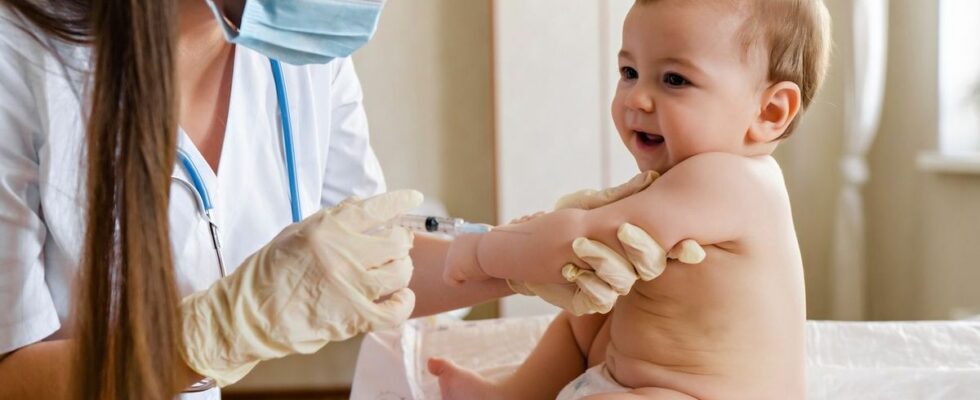Published on
Updated
Reading 2 min.
in collaboration with
Dr Gérald Kierzek (Medical Director of Doctissimo)
Medical validation:
July 23, 2024
To better protect infants against the explosion of whooping cough cases, the High Authority for Health recommends stepping up vaccination. Explanations.
As the number of cases of whooping cough continues to increase in France, and the number of deaths among newborns and infants becomes particularly worrying, the High Authority for Health (HAS) invites the French to get vaccinated.
Whooping cough, a potentially fatal infection
Whooping cough is a highly contagious bacterial respiratory infection that is transmitted through the airways. The problem? While it is most often benign, it still kills newborns and infants under 6 months of age today, “too young to be fully protected by their own vaccination“, recalls the HAS.
Since the beginning of 2024, “at least 17 deaths” ohave thus been recorded, “including 12 in infants aged 2 months and under”.
Serious complications can also occur: otitis, pneumonia, hemorrhage, rib fracture, pneumothorax, convulsions, neurological sequelae resulting from cerebral anoxia (insufficient oxygen supply to the brain), etc.
Strengthening vaccination against whooping cough
In this context, the High Authority for Health was contacted by the Ministry of Health.
The organization recalls “that the vaccination of pregnant women is the most effective way to protect newborns and infants before they can be vaccinated themselves“. And this is thanks to the transplacental transfer of maternal antibodies.
She also recommends “A vaccine booster to all persons who may be in close contact with newborns and infants under 6 months, if the last injection received was more than 5 years ago“.
- This booster dose should be administered to health and early childhood professionals in close contact with newborns or infants under 6 months of age. For these professionals, boosters are now recommended every 20 years;
- It must also be administered to those around the newborn (parents, siblings, grandparents and other people likely to be in close and lasting contact with the infant during the first six months) as part of the so-called “cocooning” strategy, unless the mother was vaccinated during pregnancy at least one month before giving birth.
Indeed, research suggests that “vaccine efficacy would fade rapidly from 5 years after the last dose, becoming insufficient to guarantee protection against infection“, the organization continues.
Finally, the HAS also stresses that it is crucial not to delay the primary vaccination of infants until they reach the required age, i.e. from 2 months.
An opinion shared by Dr. Gérald Kierzek, medical director of Doctissimo.
“Vaccination coverage is insufficient in France. Even if newborns are compulsorily vaccinated against whooping cough, the vaccine does not protect them immediately. It is therefore necessary to vaccinate those around them and not to forget the vaccine boosters after the initial dose in children.“, he recommends, in conclusion.
